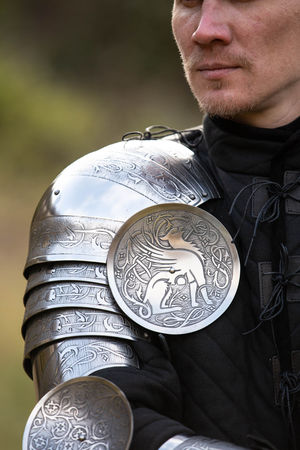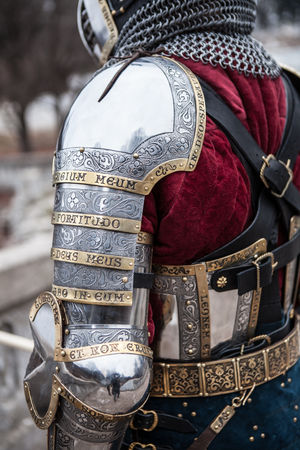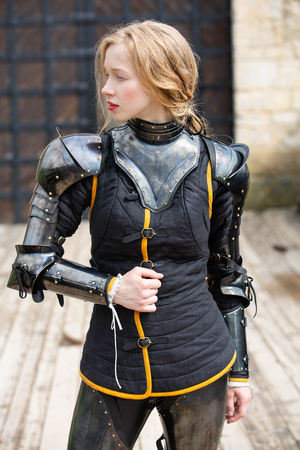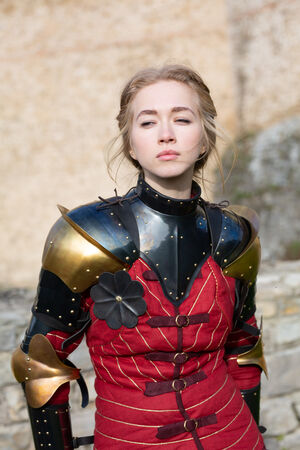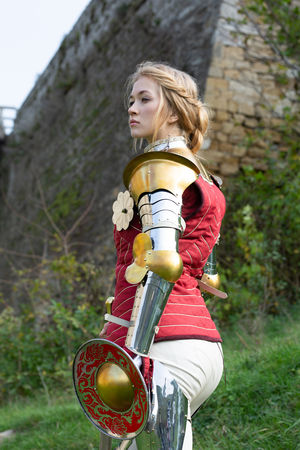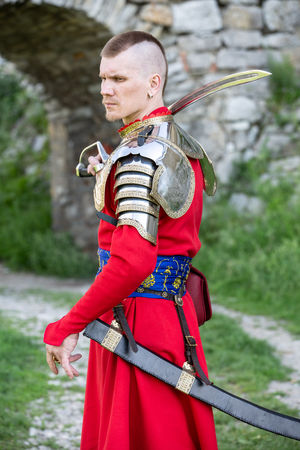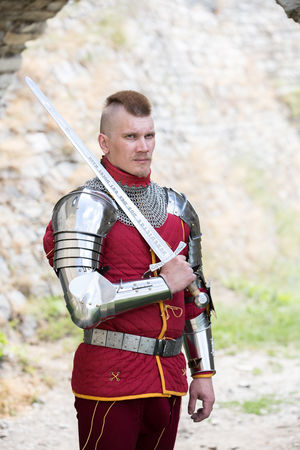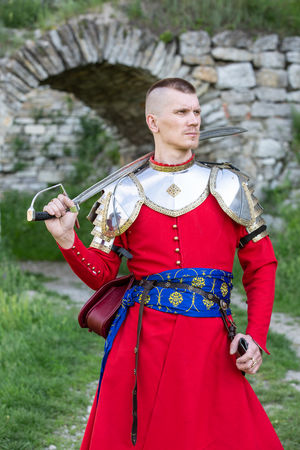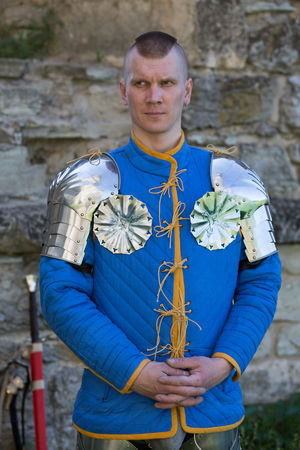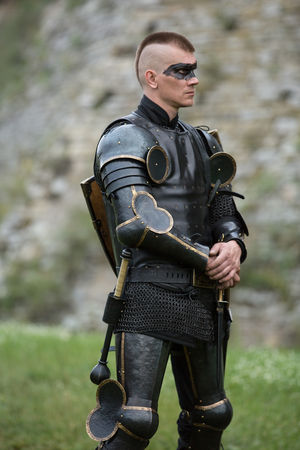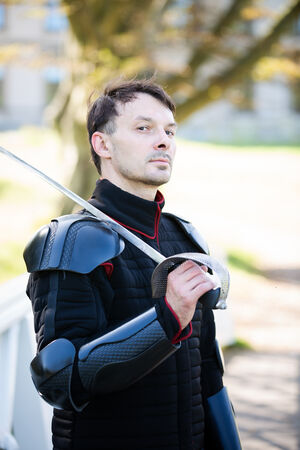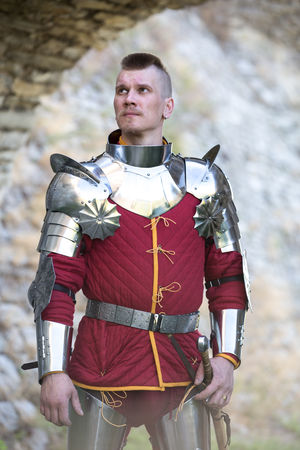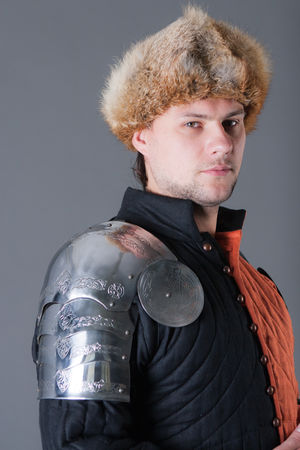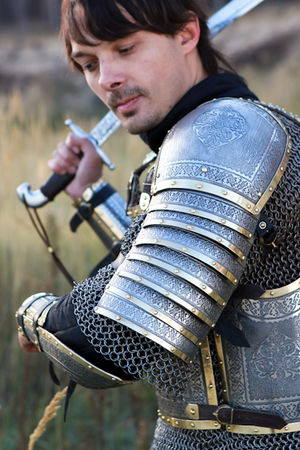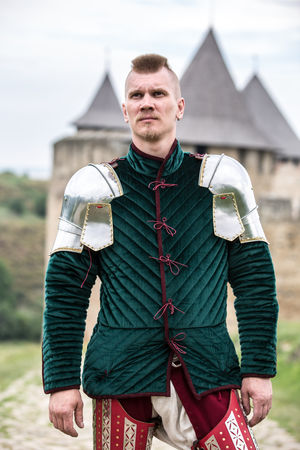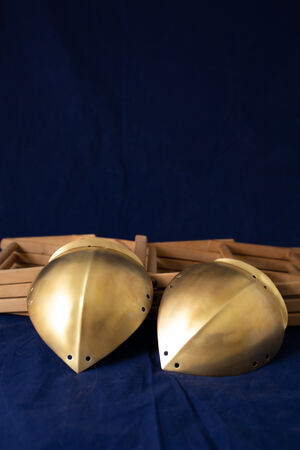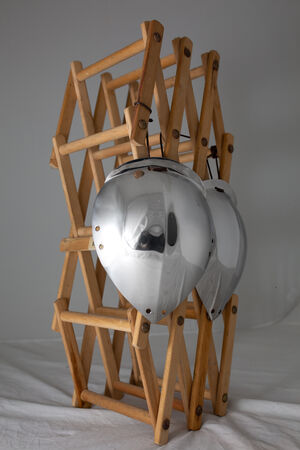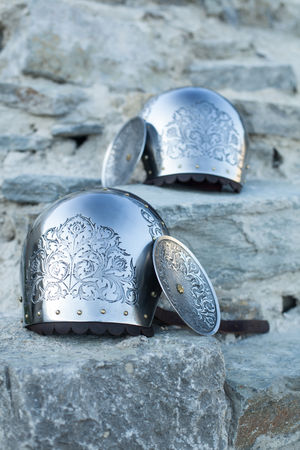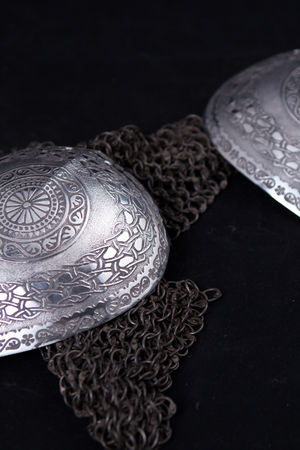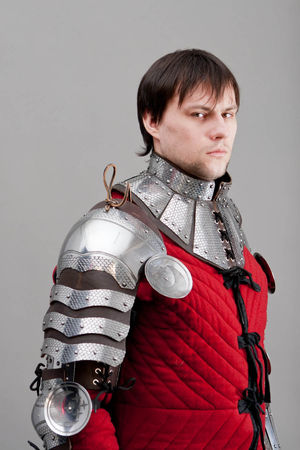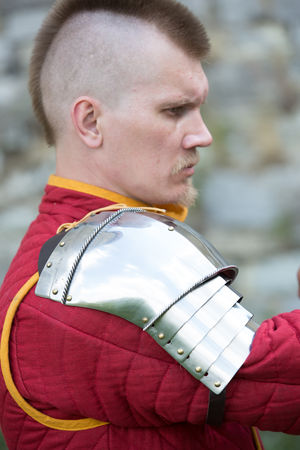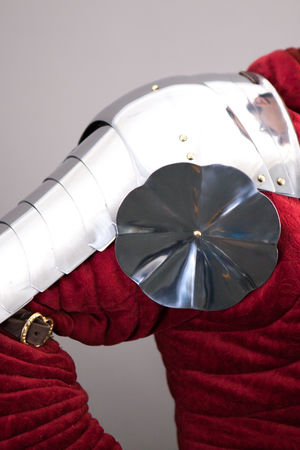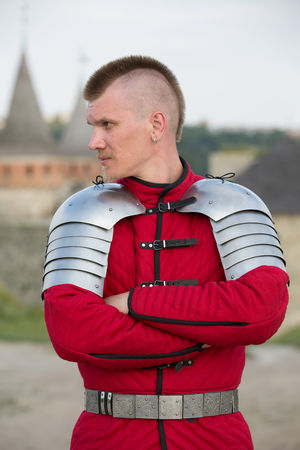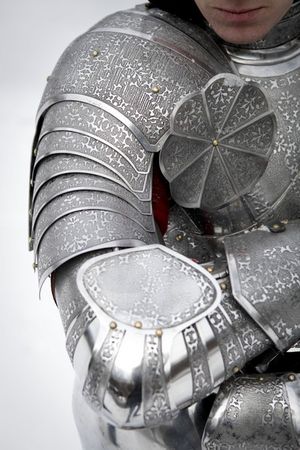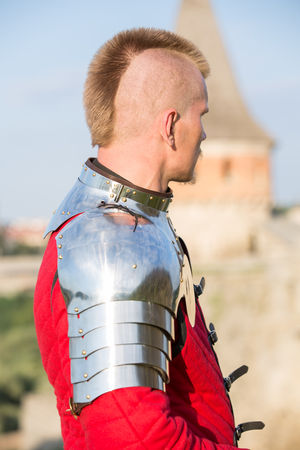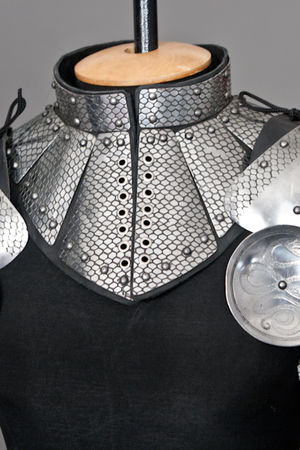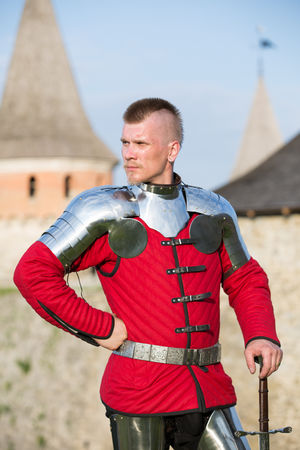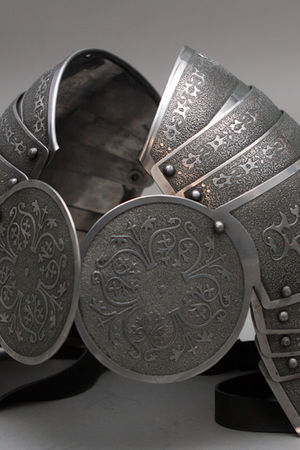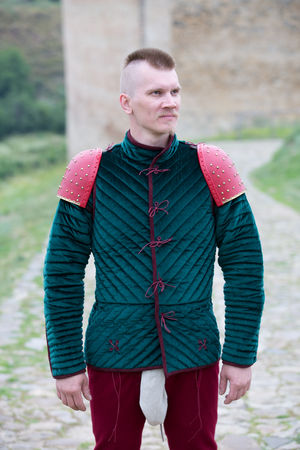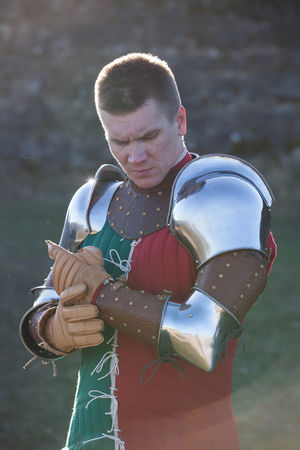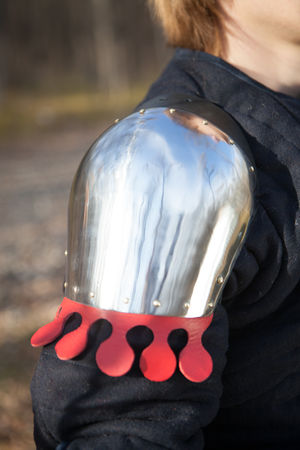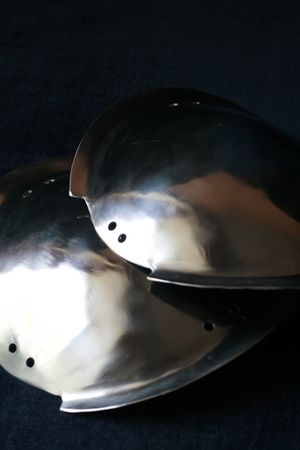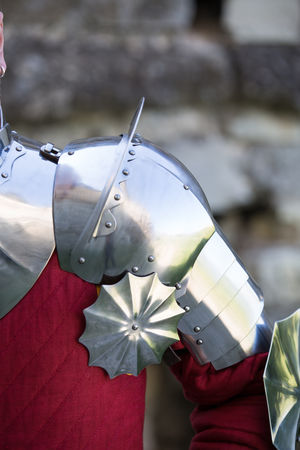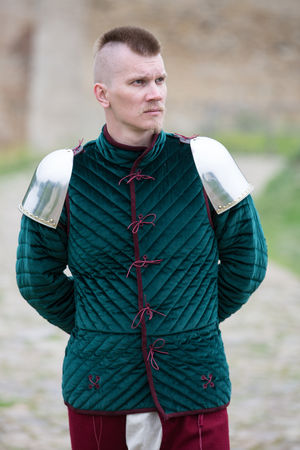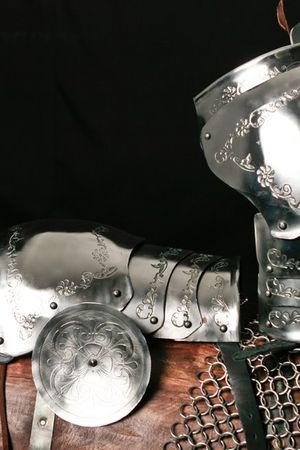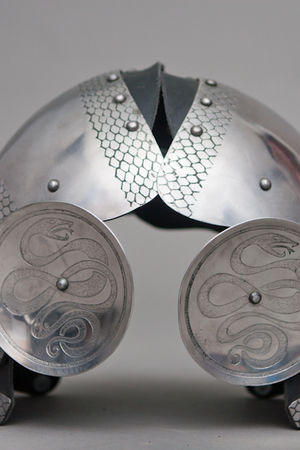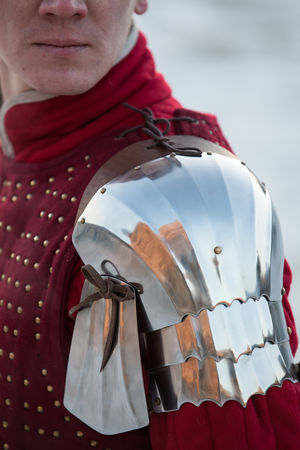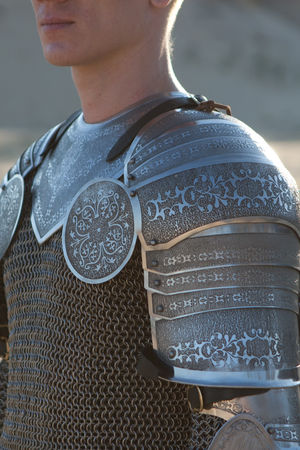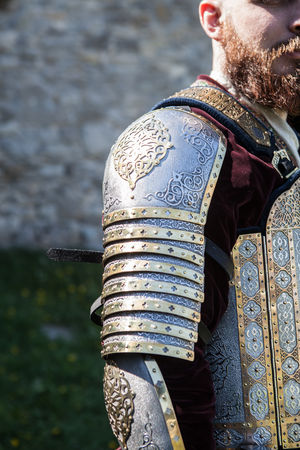Medieval Pauldrons
Medieval Pauldrons For Sale
Usually looking for where to buy pauldrons, customers imply a curved steel armor piece to cover the shoulder. In fact, there are two terms to describe that element - small shoulder guards, named spaulders, and pauldrons. If the first could be worn either by soldiers and mercenaries, who got themselves some cheap incomplete armor, the latter were mostly used by knights and later by the cuirassiers. Here in our pauldron store we have both types and much more. Check them out:
- segmental pauldrons
- European and Eastern functional pauldrons
- Rus and Slavic spaulders
- etched pauldrons
Transition of pauldrons
Despite the fact that bronze or iron shoulder armor was commonly used in ancient times, samples of survived early medieval harnesses don’t show any slightest sign of them. The only protection was provided by shield or torch. The lack of equipment was realized only in 1275 when European armorers undertook tentative attempts to make pauldrons of metal stripes.
Throughout the 14th century they evolved considerably because of the slow paced Hundred Years War, and to the end of the century shoulder guard turned into a small all-metal spaulder. They were the prerogative of the knights, and of those who could afford the expensive armor, such as an alderman or a wealthy merchant’s son. With the spread of large mercenary armies, the spaulders came in handy for the infantry and mercenaries.
Great shoulder pauldrons, known under this name up till now, came into being in the first quarter of the 15th century. In Italy, they immediately gained immense popularity as an integral part of a knightly armor, whereas in Germany they were considered too cumbersome for more than a dozen years. Only the Gothic style made them change their mind, introducing Gothic pauldrons with the modest front and huge back portion.
Full-plate pauldrons have been perfect from the bottom to the top, except a tiny defect, which could turn a knight's armor into a funeral: unprotected armpit. Thanks to the armorers' invention, the Achilles' heel of the Middle Ages was covered with a hanging round plate, called rondel. Rondels have proven their practical necessity and lasted until the end of the armor era.

